Five international elections to watch out for this year
Turkey, Poland, Argentina, Pakistan and Thailand all face crucial polls in 2023
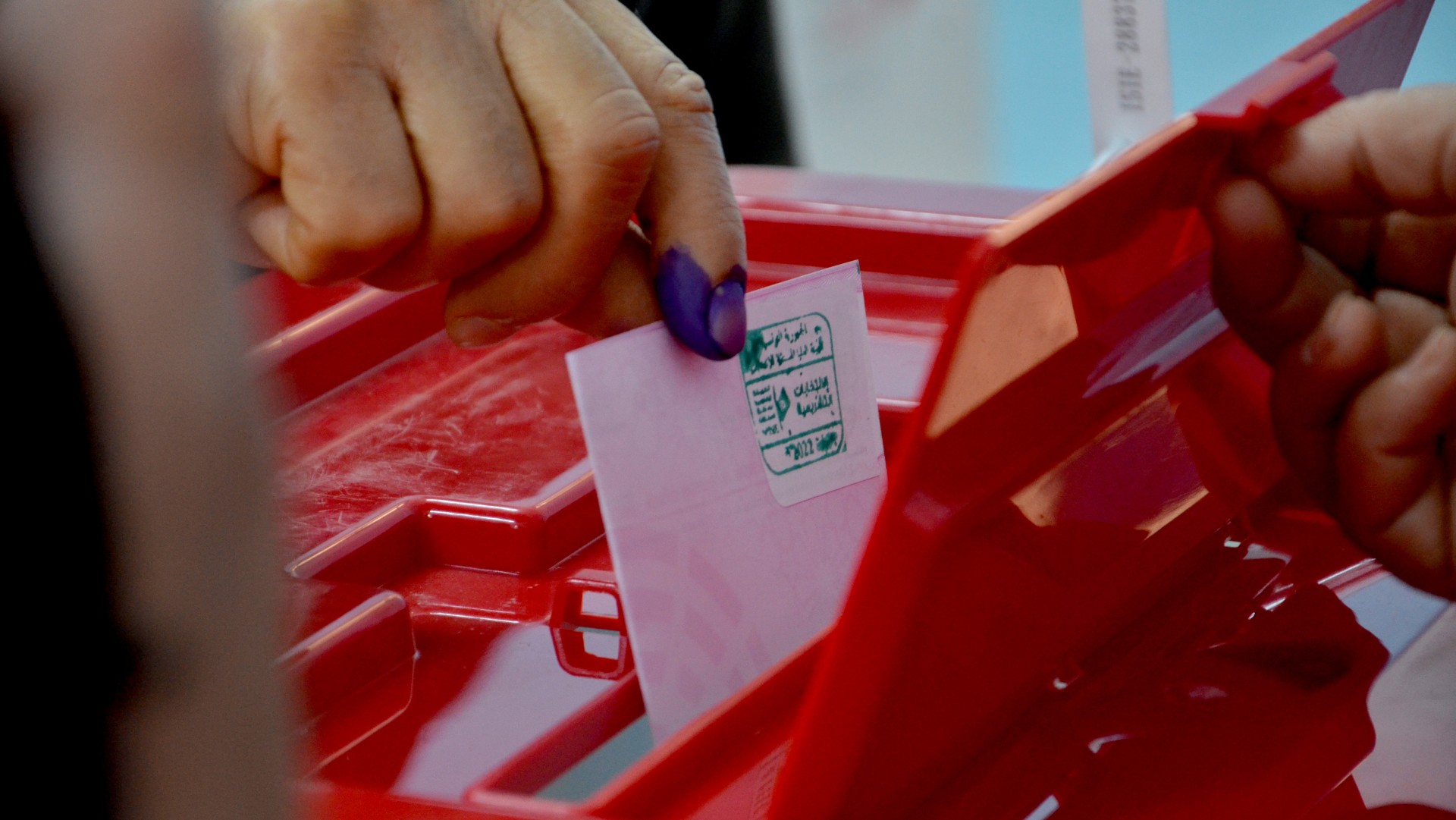
A free daily email with the biggest news stories of the day – and the best features from TheWeek.com
You are now subscribed
Your newsletter sign-up was successful
Elections in 2022 swept the far-right to power in Sweden, Italy, Hungary (and most recently Israel), while leftist leaders in South America won in Columbia and Brazil.
Elsewhere, Emmanuel Macron managed to hold off a challenge from populist Marine Le Pen in France, while the son of former dictator Ferdinand Marcos won a landslide victory in the Philippines.
“This year’s elections are less clear-cut – and instead overlap in surprising ways,” said Foreign Policy. “This may be in part because they are overwhelmingly parliamentary as opposed to presidential, which makes term limits much less of a factor.”
The Week
Escape your echo chamber. Get the facts behind the news, plus analysis from multiple perspectives.

Sign up for The Week's Free Newsletters
From our morning news briefing to a weekly Good News Newsletter, get the best of The Week delivered directly to your inbox.
From our morning news briefing to a weekly Good News Newsletter, get the best of The Week delivered directly to your inbox.
Fears of a global populist wave have receded somewhat, but “democracy is on the ballot in a number of nations” this year, said The Conversation, “while common themes – such as the handling of inflation and corruption – may determine how incumbent governments and presidents fare at the ballot box”.
Here are five elections around the world to look out for in the year ahead.
Thailand (7 May)
In Thailand “the military’s quotidian role in political life is due to face a reckoning” as the country’s autocratic leaders hope to consolidate power, said Foreign Policy.
The 7 May vote will be only the second since the military rewrote the constitution in 2017 to give it greater influence in selecting the legislature. With incumbent former army chief Prayuth Chan-ocha, from the pro-military Palang Pracharat Party, deeply unpopular, Pheu Thai, Thailand’s main opposition party with links to former premier Thaksin Shinawatra, is seen to have the best chance of forming the next government, according to the latest polls from Bloomberg.
A free daily email with the biggest news stories of the day – and the best features from TheWeek.com
Yet despite this, Foreign Policy said that “observers are not optimistic that they will prevail. Instead, they surmise that the most likely election scenario will involve the military-monarchy complex once again finding a way to further dilute the will of the people – and wrest power from those parties the majority of Thais support.”
Turkey (18 June)
“People in Turkey tend to call every presidential election historic – but the June 2023 election will truly be historic,” said Ahmet Kuru, professor of political science at San Diego State University, for The Conversation.
The lengthy rule of the increasingly autocratic president, Recep Tayyip Erdoğan, who has governed Turkey since 2003 first as prime minister then since 2014 as president, “could be put to its toughest test” on 18 June, said Time magazine.
Erdoğan has lost support in recent years as his economic reforms have failed to turn the country around, leading to massive inflation and a collapse in the currency. This in turn has prompted a further crackdown on the opposition and press.
“The 2023 presidential election will be fought over politics, economics and religion,” said Kuru. “If Erdoğan wins, he will frame himself as the second founder of Turkey, after Mustafa Kemal Atatürk. If he loses, his political, business, and religious allies will face the risk of being expunged.” The stakes could not be higher.
Poland (expected October or November)
“Probably the most pivotal and important election of 2023 in emerging Europe” is Poland’s parliamentary vote, expected in October or November, said Craig Turp-Balazs in Emerging Europe.
The ruling Law and Justice Party (PiS) is expected to face its biggest opposition since retaking power in 2015 in the face of mounting public anger to its increasingly illiberal policies and economic stagnation. However, the government’s strong response to the war in neighbouring Ukraine, including accepting millions of refugees, has won it support both internationally and at home.
“As usual, the extent to which the country’s opposition is able to unite and galvanise the anti-PiS vote behind a clear, coherent alternative will be crucial,” said Turp-Balazs. He noted that “in the previous two elections, in 2015 and 2019, the opposition appeared divided and weak, handing PiS easy victories”.
Pakistan (12 October at the latest)
Last year was a tumultuous one for Pakistan, which faced a perfect storm of political, economic and environmental crises.
In April 2022, the former cricketer turned populist prime minister Imran Khan was ousted in a no-confidence vote and replaced by Shehbaz Sharif of the centre-right Pakistan Muslim League (PML) until this year’s elections, which have to be held by 12 October.
Opinion polls are hard to gauge “but it appears that Khan continues to be the darling of public opinion – and a thorn in the side of Pakistan’s security establishment”, said Foreign Policy. It cites his “unique” willingness to challenge the Pakistani military, which effectively rules the country.
Time magazine said “the big question-mark is when elections will take place – especially since Khan is pressuring the government to hold them earlier”.
“Khan has been gaining a lot of popularity, so politically speaking, the sooner the elections happen, the better for him,” said Michael Kugelman in the Time article.
Argentina (29 October)
The country may still be basking in World Cup glory, but 2023 promises to be a gruelling year for Argentina in the run-up to elections in the autumn.
With sky-high inflation, low growth and one of the highest debt-per-capita ratios in Latin America, the economy looks set to dominate the campaign. President Alberto Fernández and his powerful vice-president, Cristina Fernández de Kirchner, have both been plagued by corruption scandals, with the later sentenced to six years in jail last month over bribery charges.
“Some are even predicting that the combination of mishandling the economy and the corruption scandal could bring an end to Peronism, the political philosophy that has governed Argentina for much of last 70 years,” said Eduardo Gamarra, professor of politics and international relations at Florida International University, for The Conversation.
The opposition party of former president Mauricio Macri is similarly divided and struggling to agree on a candidate. “These political and economic circumstances may favour a third contender,” suggested Gamarra, specifically Javier Milei, “a populist libertarian who has been rising in the polls and whose brusque style has drawn comparisons with Donald Trump”.
-
 The 9 best steroid-free players who should be in the Baseball Hall of Fame
The 9 best steroid-free players who should be in the Baseball Hall of Famein depth These athletes’ exploits were both real and spectacular
-
 ‘Bad Bunny’s music feels inclusive and exclusive at the same time’
‘Bad Bunny’s music feels inclusive and exclusive at the same time’Instant Opinion Opinion, comment and editorials of the day
-
 What to watch on TV this February
What to watch on TV this Februarythe week recommends An animated lawyers show, a post-apocalyptic family reunion and a revival of a hospital comedy classic
-
 The high street: Britain’s next political battleground?
The high street: Britain’s next political battleground?In the Spotlight Mass closure of shops and influx of organised crime are fuelling voter anger, and offer an opening for Reform UK
-
 Is a Reform-Tory pact becoming more likely?
Is a Reform-Tory pact becoming more likely?Today’s Big Question Nigel Farage’s party is ahead in the polls but still falls well short of a Commons majority, while Conservatives are still losing MPs to Reform
-
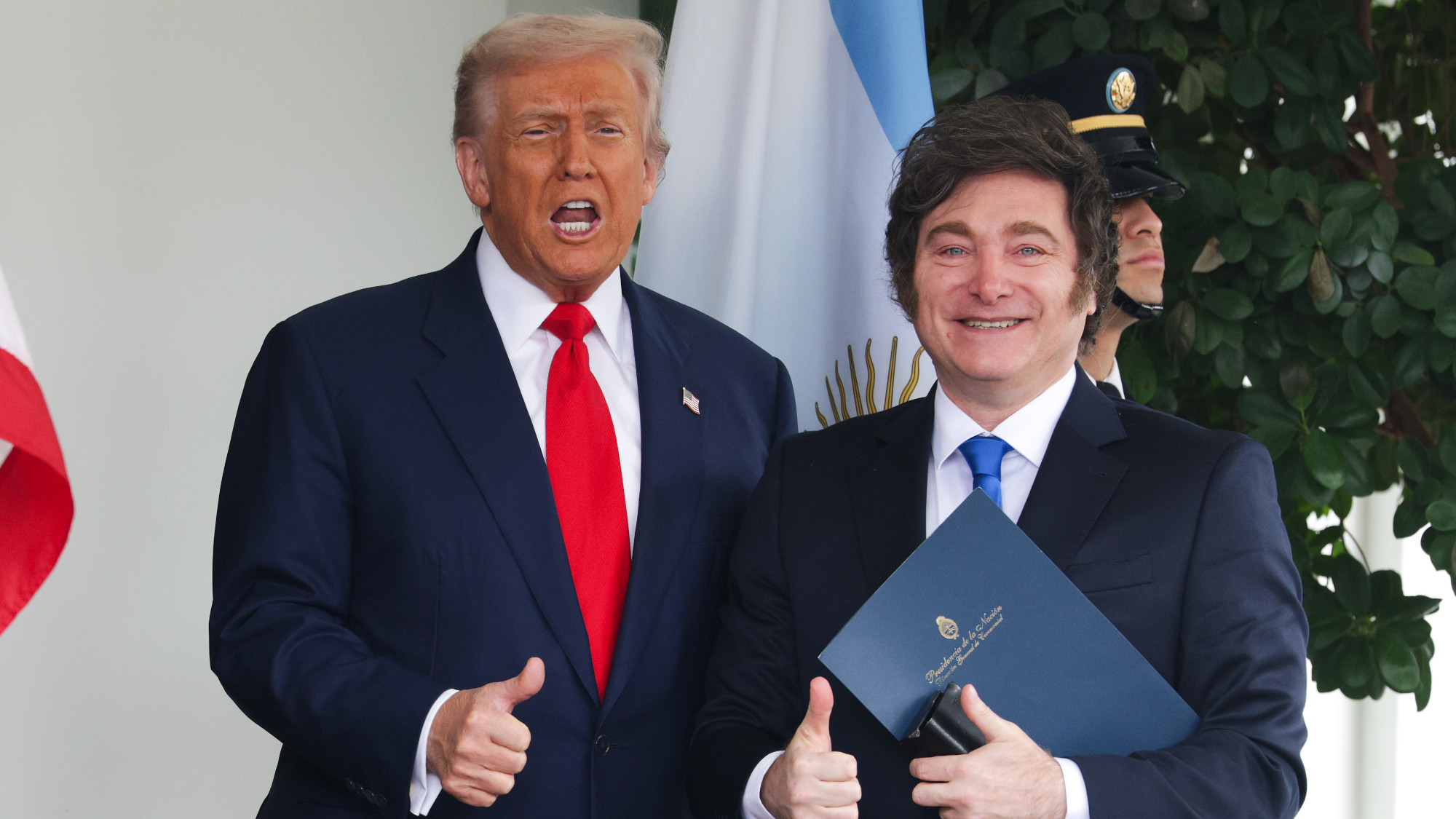 Bailouts: Why Trump is rescuing Argentina
Bailouts: Why Trump is rescuing ArgentinaFeature The White House approved a $20 billion currency swap with Argentina
-
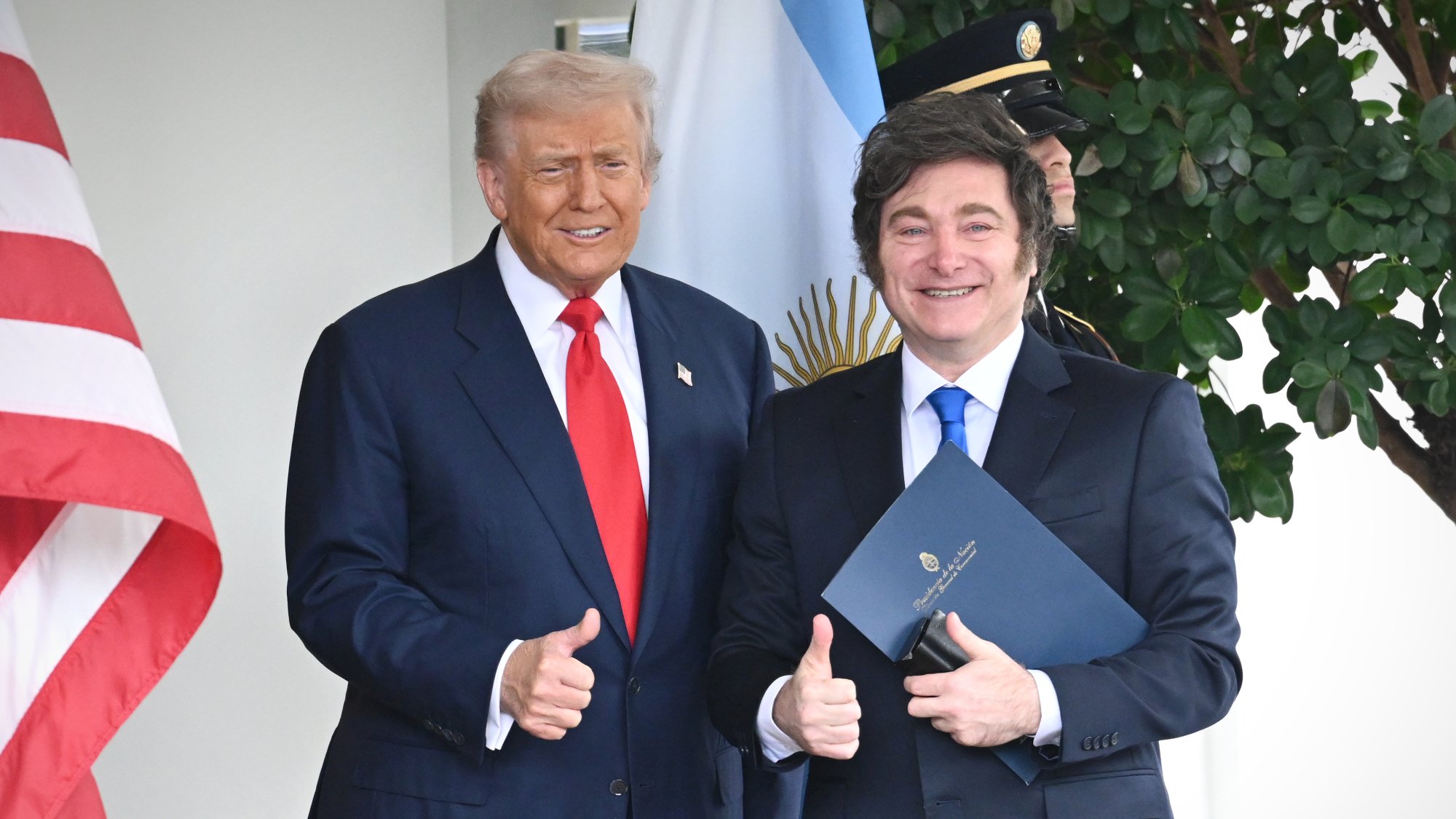 Trump ties $20B Argentina bailout to Milei votes
Trump ties $20B Argentina bailout to Milei votesspeed read Trump will boost Argentina’s economy — if the country’s right-wing president wins upcoming elections
-
 Taking the low road: why the SNP is still standing strong
Taking the low road: why the SNP is still standing strongTalking Point Party is on track for a fifth consecutive victory in May’s Holyrood election, despite controversies and plummeting support
-
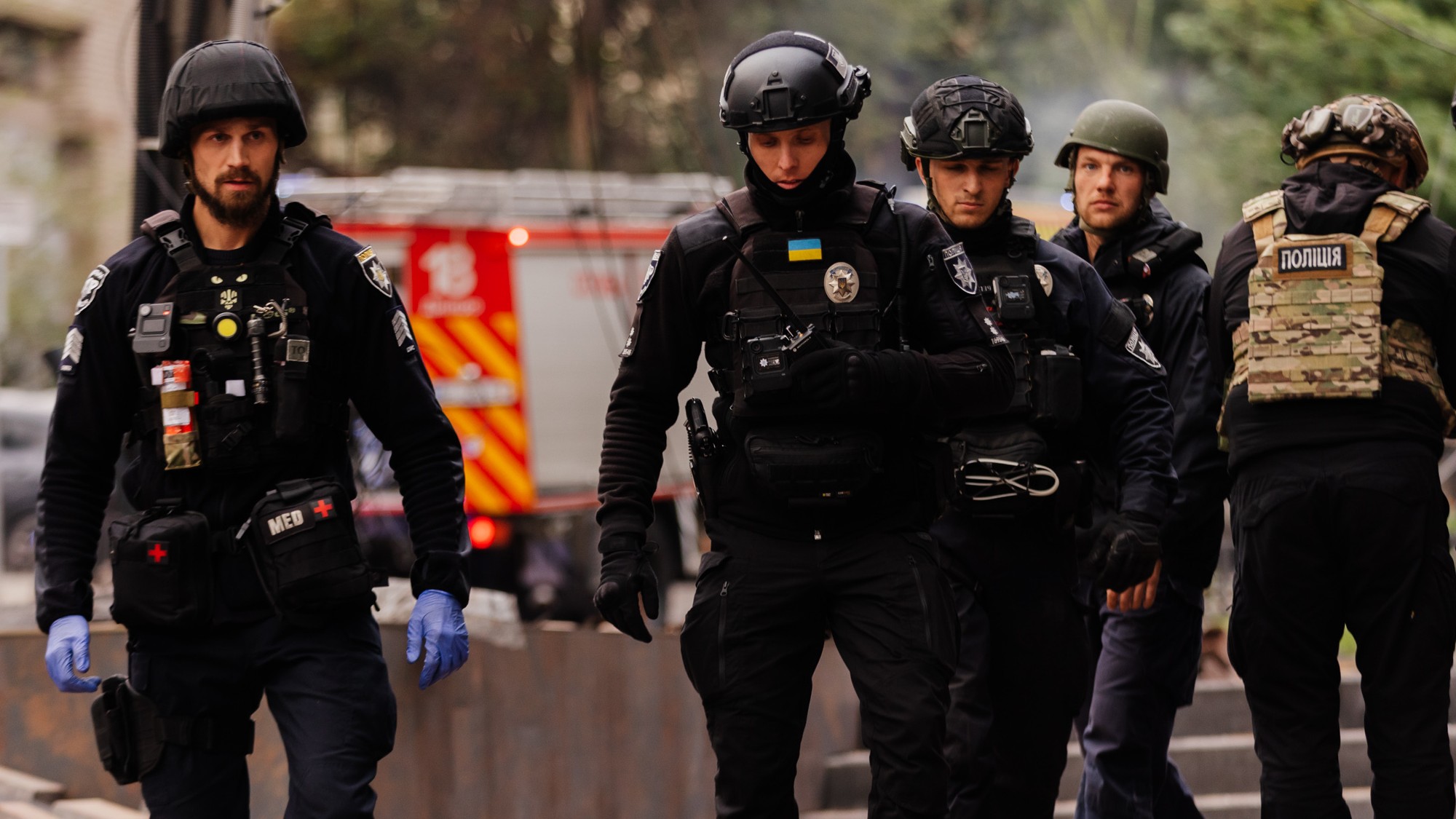 Russia: already at war with Europe?
Russia: already at war with Europe?Talking Point As Kremlin begins ‘cranking up attacks’ on Ukraine’s European allies, questions about future action remain unanswered
-
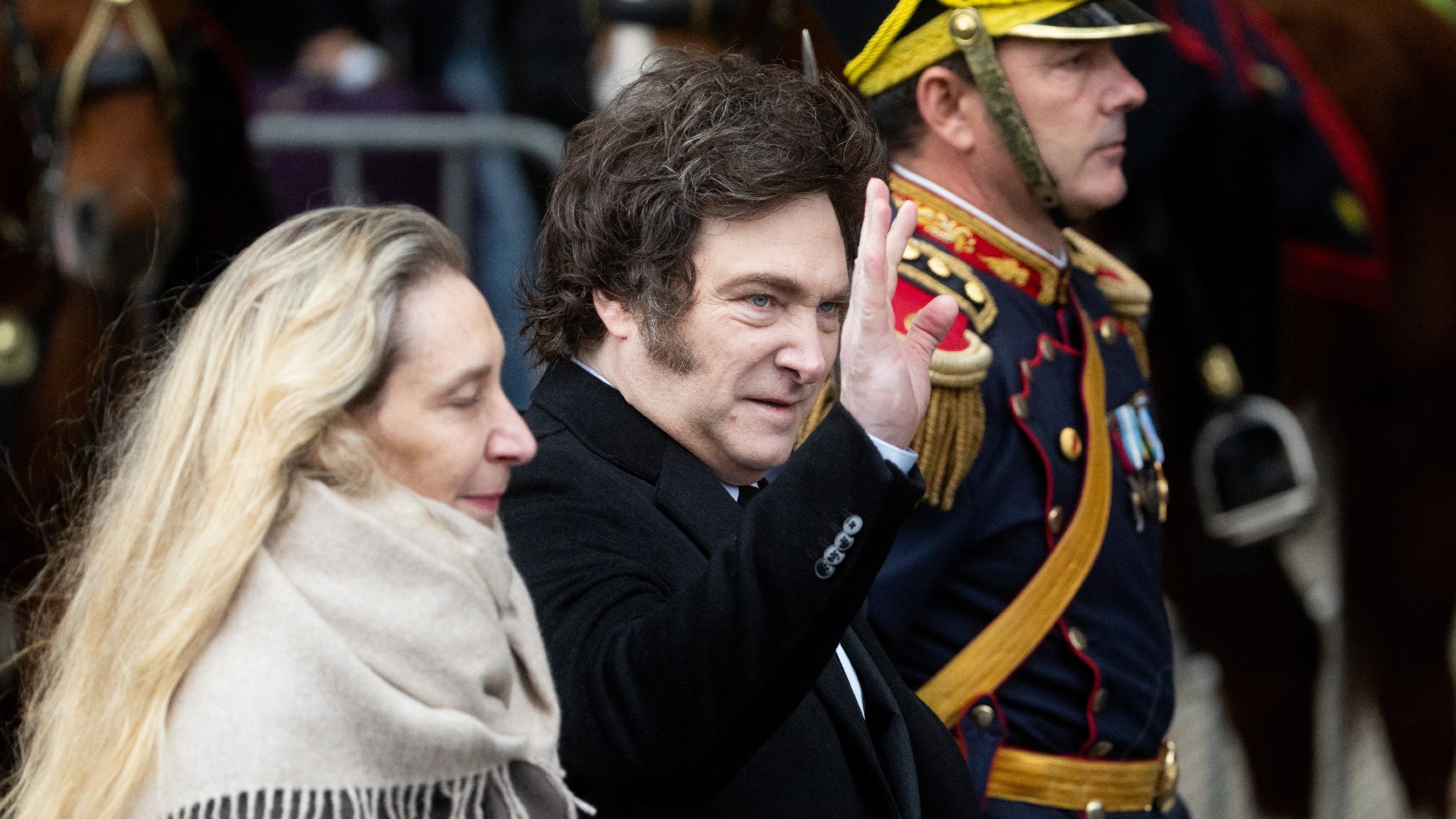 Under siege: Argentina’s president drops his chainsaw
Under siege: Argentina’s president drops his chainsawTalking Point The self-proclaimed ‘first anarcho-capitalist president in world history’ faces mounting troubles
-
 ‘Conspiracy theories about her disappearance do a disservice’
‘Conspiracy theories about her disappearance do a disservice’Instant Opinion Opinion, comment and editorials of the day